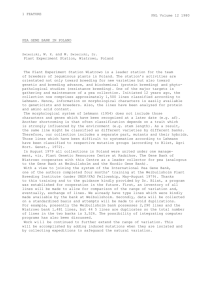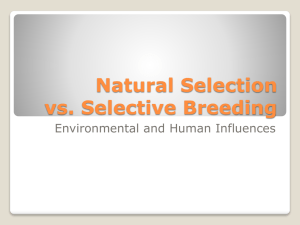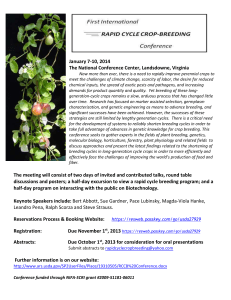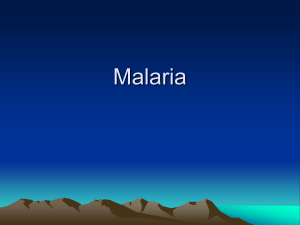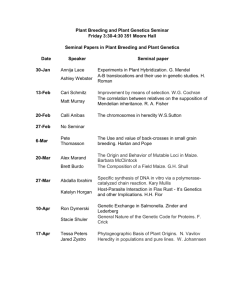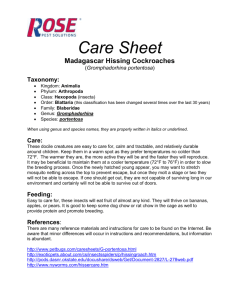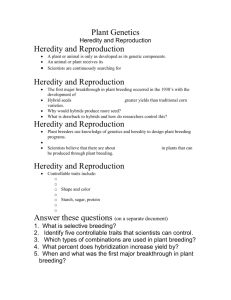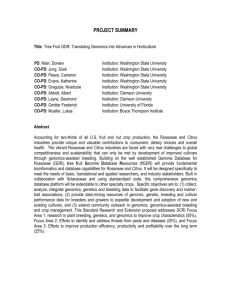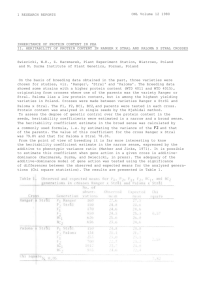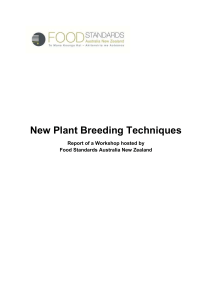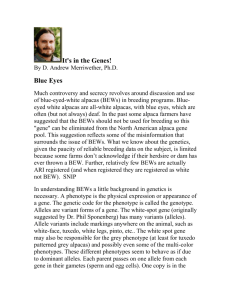7th European Plant Science Organisation Conference
advertisement
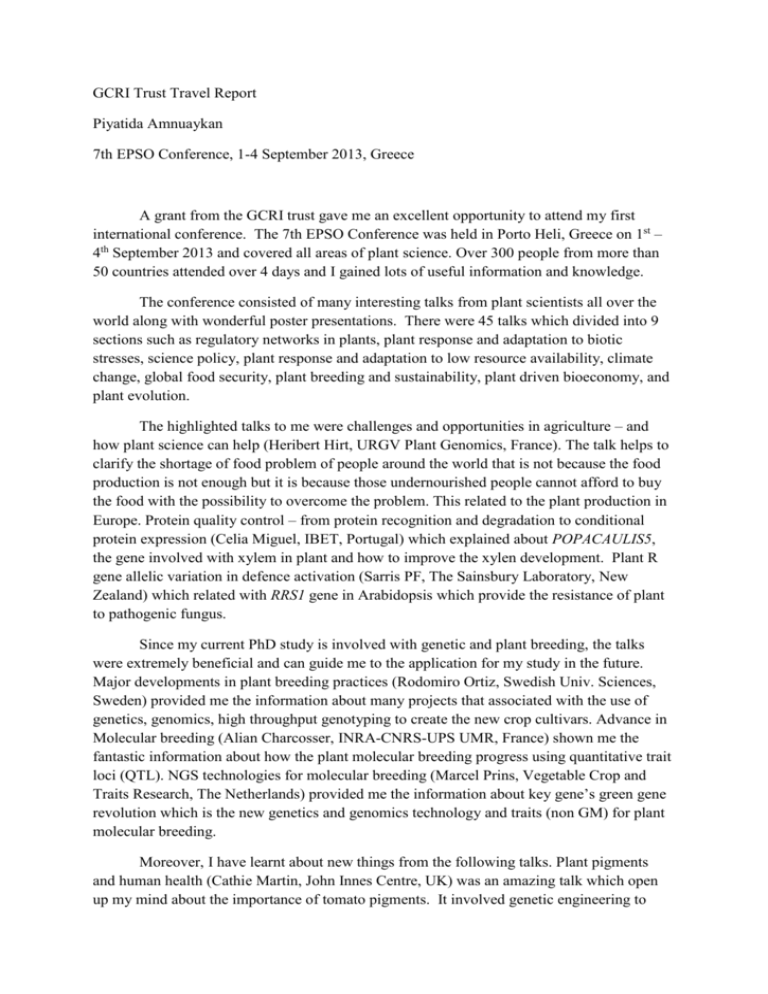
GCRI Trust Travel Report Piyatida Amnuaykan 7th EPSO Conference, 1-4 September 2013, Greece A grant from the GCRI trust gave me an excellent opportunity to attend my first international conference. The 7th EPSO Conference was held in Porto Heli, Greece on 1st – 4th September 2013 and covered all areas of plant science. Over 300 people from more than 50 countries attended over 4 days and I gained lots of useful information and knowledge. The conference consisted of many interesting talks from plant scientists all over the world along with wonderful poster presentations. There were 45 talks which divided into 9 sections such as regulatory networks in plants, plant response and adaptation to biotic stresses, science policy, plant response and adaptation to low resource availability, climate change, global food security, plant breeding and sustainability, plant driven bioeconomy, and plant evolution. The highlighted talks to me were challenges and opportunities in agriculture – and how plant science can help (Heribert Hirt, URGV Plant Genomics, France). The talk helps to clarify the shortage of food problem of people around the world that is not because the food production is not enough but it is because those undernourished people cannot afford to buy the food with the possibility to overcome the problem. This related to the plant production in Europe. Protein quality control – from protein recognition and degradation to conditional protein expression (Celia Miguel, IBET, Portugal) which explained about POPACAULIS5, the gene involved with xylem in plant and how to improve the xylen development. Plant R gene allelic variation in defence activation (Sarris PF, The Sainsbury Laboratory, New Zealand) which related with RRS1 gene in Arabidopsis which provide the resistance of plant to pathogenic fungus. Since my current PhD study is involved with genetic and plant breeding, the talks were extremely beneficial and can guide me to the application for my study in the future. Major developments in plant breeding practices (Rodomiro Ortiz, Swedish Univ. Sciences, Sweden) provided me the information about many projects that associated with the use of genetics, genomics, high throughput genotyping to create the new crop cultivars. Advance in Molecular breeding (Alian Charcosser, INRA-CNRS-UPS UMR, France) shown me the fantastic information about how the plant molecular breeding progress using quantitative trait loci (QTL). NGS technologies for molecular breeding (Marcel Prins, Vegetable Crop and Traits Research, The Netherlands) provided me the information about key gene’s green gene revolution which is the new genetics and genomics technology and traits (non GM) for plant molecular breeding. Moreover, I have learnt about new things from the following talks. Plant pigments and human health (Cathie Martin, John Innes Centre, UK) was an amazing talk which open up my mind about the importance of tomato pigments. It involved genetic engineering to create different colours of tomatoes that are better for human health. Omega3 fatty acids – soybean, rapeseed etc. (Maurice Moloney, Rothamsted Research, UK) shown me about how to feed the fish with the plants to activate them to produce more useful fatty acid. There was a talk that provided me with very clear information about an opportunity for the plant science research community in Europe. It was European Research Council’s support to Life Sciences (Peter Hedden, Rothamsted Research,UK). This was very important for the community and funding programme. I had been accepted to do a poster presentation about my PhD project. The title was Environmental and genetic regulation of juvenility in Antirrhinum majus. It was focusing mainly on the effects of light integral on photosynthetic assimilation and partitioning, the expression of genes involved in carbohydrate metabolism, and the expression of key flowering time genes in relation to juvenility. My poster got very good feedback from many attendees. I was able to discuss my work with the other people and learnt so many things from that. I met Nick W. Albert from AgResearch Limited, New Zealand who did a lot of works with flowering time in plant including Antirrhinum majus. He gave me good information about the relationship of carbohydrate content and flowering time in plants which is correlate to my study. We exchanged the interesting results and contact information for the future network. I also had a chance to talk with Claudia Martinho from Insituto Gulbenkian de Ciencia, Portugal. She is doing the work with miRNAs and sugar metabolism which also relates to my studies. The conference provided me not only the information and interesting knowledge, but also the networking and the funding opportunity. I realised how big the network of plant area is and I obtained plenty of useful information to continue and improve my study, which will lead to the networking and improvement of plants and horticulture in the UK. I would like to thank the Trust for this valuable opportunity.
